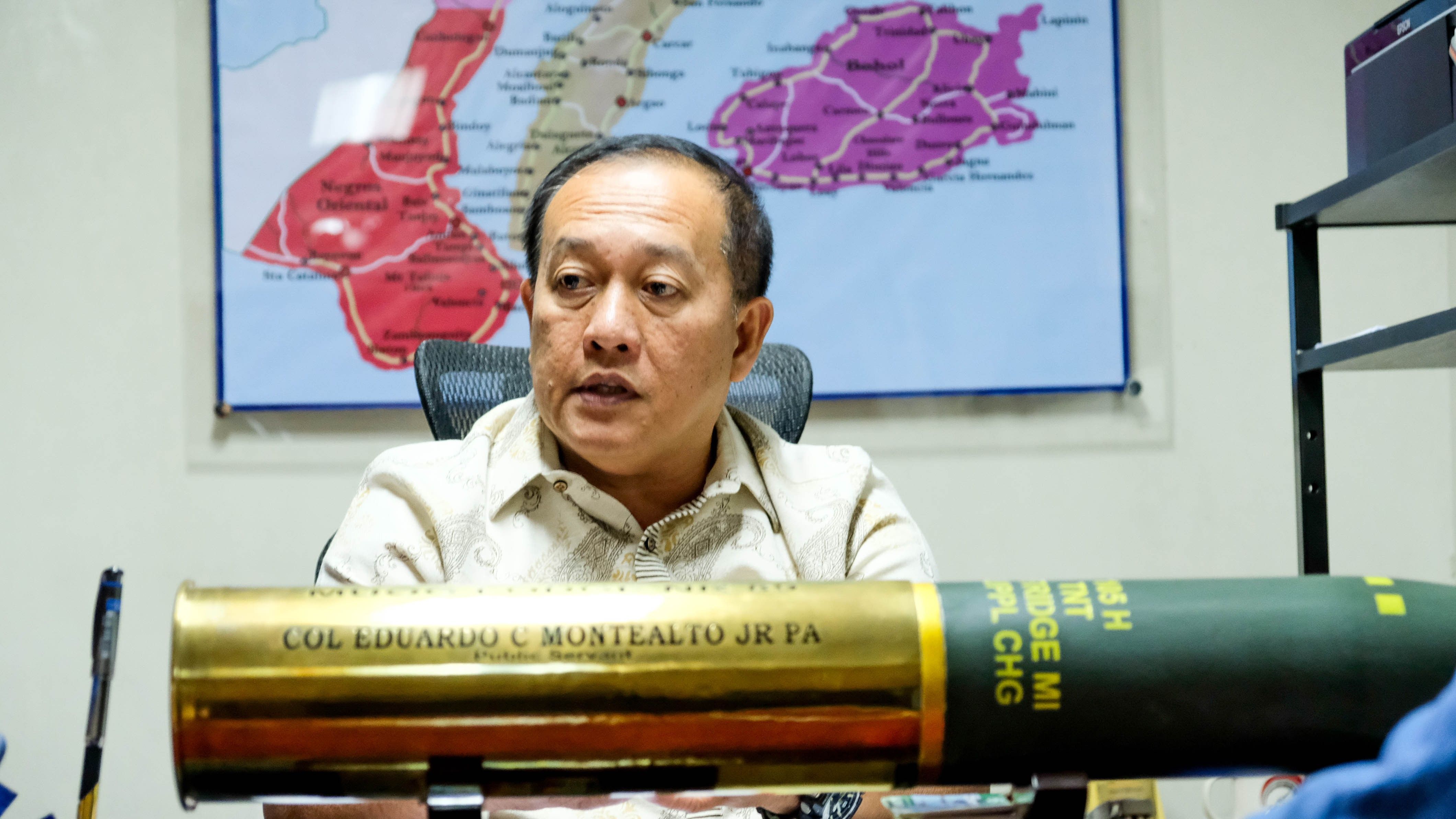Special report: ‘Taxis won’t die if they will evolve’ (Last of a series)

CEBU, Philippines — “They choose which passengers to pick. They don’t use the meter. They drive the long route. They’re addicts. They hit on their passengers. They stink.”
The list goes on.
Complaints against Cebu’s abusive taxi drivers are piling up by the day, but whether there are truths to these accusations, one thing is certain – the taxis are here to stay.
At least that’s according Eduardo Montealto Jr., director of the Land Transportation Franchising and Regulatory Board in Central Visayas.
Montealto said he does not think the taxi industry in Cebu is going to die anytime soon as the taxis are part of the government’s modernization program detailed under Department of Transportation Department Order No. 2017-011 issued in June 2017, otherwise known as the Public Utility Vehicle Modernization Program (PUVMP).
“Dying ang taxi industry? Dili na tinuod kay maayo ang business sa taxi. Ang ila man gung concern is ang TNVS, particularly ang Grab nga nahatagan og franchise,” he told The FREEMAN in an interview.
PUVMP is a program of the government that aims to have modern, sustainable, and efficient public transportation system by June 2020.
The modernization program does not only include route planning of the local government units but also provides regulatory reform for all public transport services, taxis included.
LTFRB-7 data show that there are at least 32,000 taxis, PUJs, trucks, transport network vehicle service (TNVS) vehicles, buses, tourist transport, and shuttles in Central Visayas. In Metro Cebu, there are 6,000 taxi units and 1,500 TVNS units operating.
The modernization program provides that by June 1, 2019, all 6,000 taxi units are expected to have already installed GPS tracker and mobile application. If this is not met, Montealto said the board will not give provisional authority to the operator and will not allow its units to ply the streets.
The modernization scheme also requires all modes of transportation to use Euro 4 engines, which emit non-toxic emission and will thereby address the problem on pollution.
All drivers of the any mode of transportation will also be given salaries, compared to the existing boundary system.
Under the program, Montealto said, taxis are mandated to have mobile application with global positioning system (GPS), dashboard cameras, global network for testing with tracker and speed limiter, automated fare collection system, among others.
He said PUJs will be modernized like the running Beeps that have air-conditioned, automated fare collection system, closed-circuit television (CCTV), and GPS, among others.
Montealto said the government will assist the owners of old jeepney units to modernize their units as they can avail of an P80,000 loan.
“There are two main reasons why we need this modernization program: to ease congestion and address pollution. Kailangan na pod nga convenient atong transportation kay dili man ni convenient karon, huot kaayo ug aso,” he said.
Long taxi queues have been observed in Cebu City because, according to Montealto, the 6,000 existing units are “overpopulated and oversupplied” as the number is not proportionate to the population of the riding public.
He denied allegations that the board is lax in implementing rules and regulations against other modes of transport but is reportedly strict when it comes to the taxi industry.
In fact, he said, a TNVS driver was terminated from service after using “spirit of ammonia” to prevent him from sleeping which caused the passenger to jump out of the car in February this year.
Montealto said the board has not recommended termination for taxi drivers during his stint as director in Region 7 from August 2018 up to this writing.
So what do taxi drivers and operators need to do at this point?
Montealto said taxi operators should focus more on disciplining their drivers as it will address traffic congestion and improve the safety of the commuting public.
He said two of the common violations committed by the drivers of taxis and PUJs are overtaking and not stopping before the pedestrian lanes if there are people crossing.
With LTFRB’s existing driver’s academy training, operators who are looking for qualified drivers are given an avenue to look for one.
Well-trained and disciplined drivers are now with TNVS which is preferred by the riding public compared to taxis, said Montealto.
If taxi operators can no longer cope with the innovations in the industry, Montealto said they should shift to another kind of business.
“Ang mga taxi drivers and operators are not our primary responsibility. Ang gihatagan gyud namo og paramount is ang riding public, ang ilang safety,” he said.
Montealto urged all taxi operators to compete and improve their services for the riding public.
Since the taxi industry is part of the modernization program, Montealto said it is inappropriate to say that the industry is dying because it is still one of the primary modes of transportation in Metro Cebu.
LTFRB is not alone in thinking there is still hope for the taxis.
The city government is willing to assist taxi operators but Cebu City administrator Nigel Paul Villarete said they should start a dialogue to know their concerns and what they want to do.
Mayor Tomas Osmeña, too, has brushed aside allegations that the city government is giving sacks of rice to habalhahbal drivers to lure voters, a move criticized by some taxi operators and drivers.
The mayor said he decided to provide one sack of rice to qualified habalhabal and Angkas drivers following the decision of the Supreme Court issuing the temporary restraining order against the operations of the two-wheeled vehicles for public transportation.
“If the taxi drivers are forced to stop, I will give them (taxi drivers) two sacks of rice even after the elections,” the mayor told The FREEMAN.
As far as LTFRB is concerned, Montealto said Republic Act 4136 prohibits motorcycles, among other two-wheeled vehicles, to be used to transport passengers or freight for pay.
The Department of Transportation created technical working group that is reviewing the petitions to legalize the operations of habalhabal and Angkas.
“Di ma legalize kon dili ma amend ang R.A. 4136 nga nag ingon nga ang two-wheeled vehicles dili pwede buhaton nga public utility vehicle kon ma amend na siya, mag himo napod og measure nga mag disiplina aning mga drivers,” Montealto said.
LTFRB-7 records show that an average 15 vehicular accidents take place daily in Region 7.
While acknowledging the fact that motorcycles are a faster mode of mobility, Montealto said the government should not compromise the safety of the passengers and drivers.
Over 50 motorcycles have been impounded since December 2018 when the Supreme Court issued temporary restraining order against Angkas and habalhabal operations.
Once two-wheeled vehicles as a means of public transport will be legalized, Montealto said the board and the DOTr will make implementing rules and regulations to ensure the safety of the passengers.
Meanwhile, Osmeña said the taxi industry can be saved by banning private cars going to the airport as the taxis will be used by passengers going to and from the airport unlike when people use their cars wherein the car comes back from the airport empty.
As for Villarete, who is also an urban planner, all sectors of public transport should adapt to the modernization program to avoid being left out by times.
“The world changes and improves. It's how we react to it and prepares for it that makes us resilient and able to make the best of otherwise changing landscape,” he said. — Jean Marvette A. Demecillo/JMD (FREEMAN)
- Latest




















